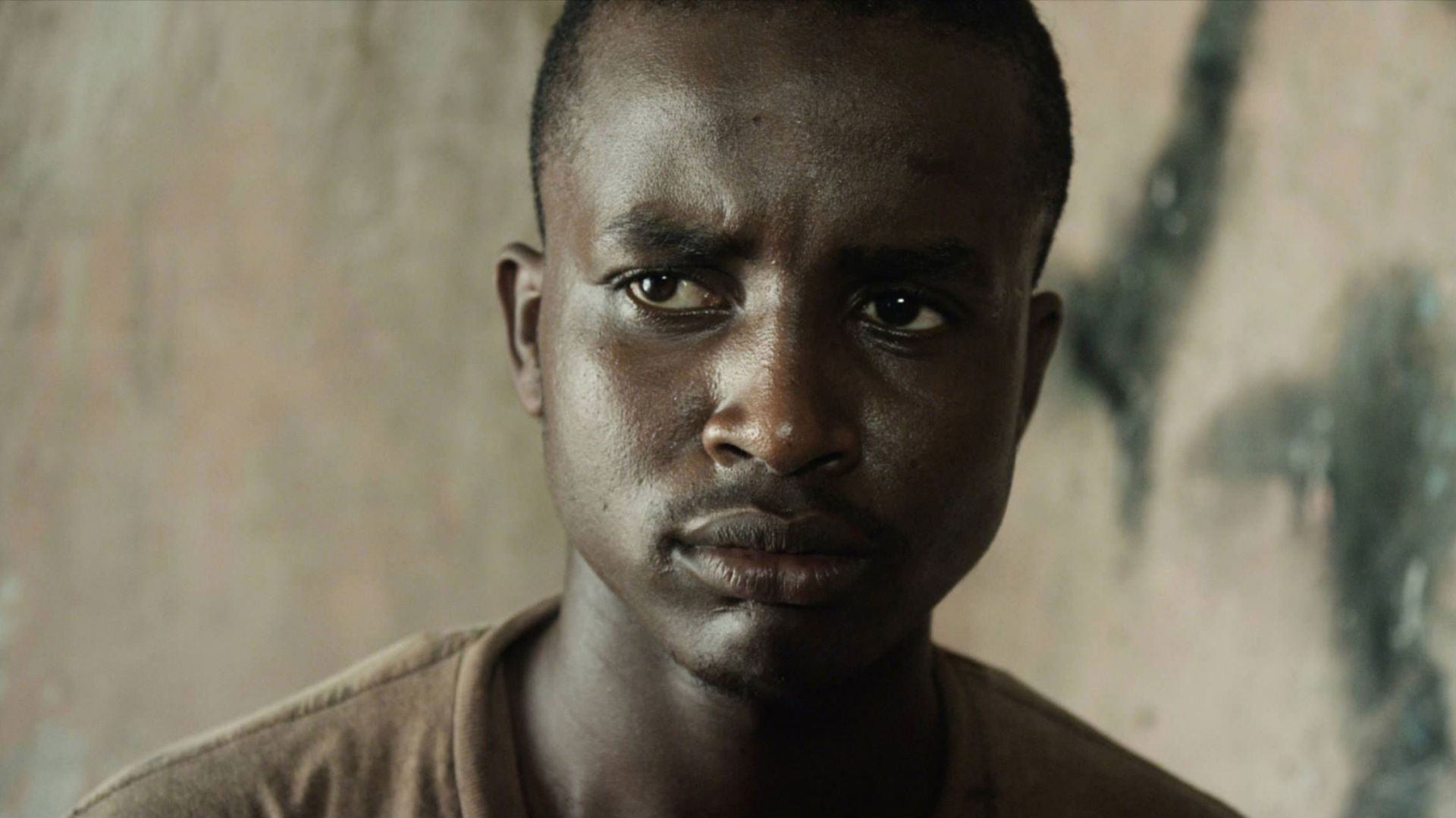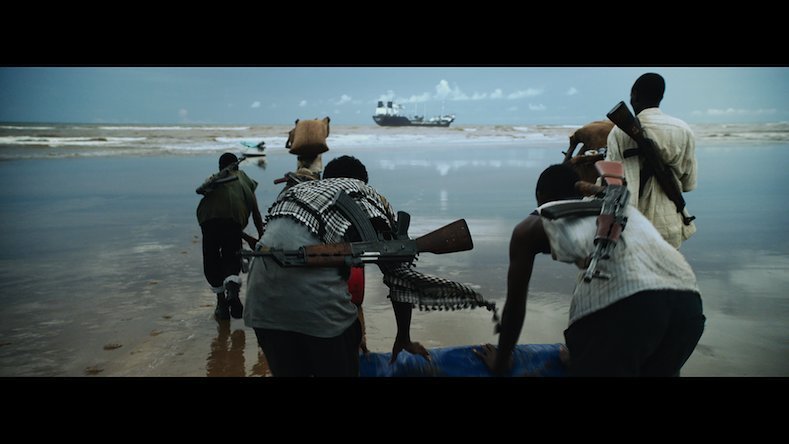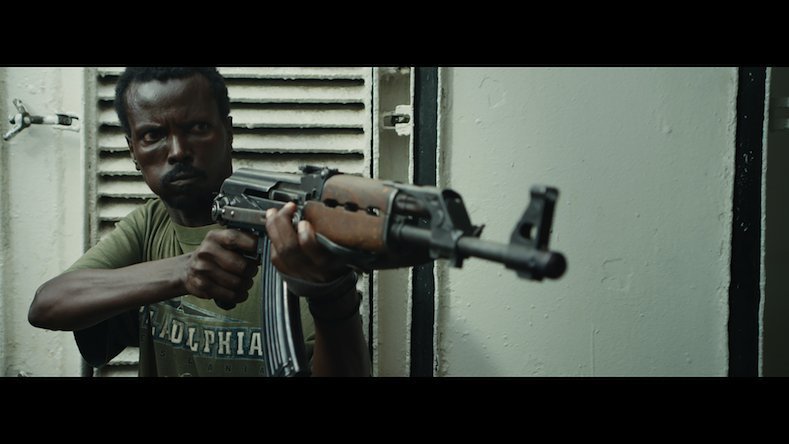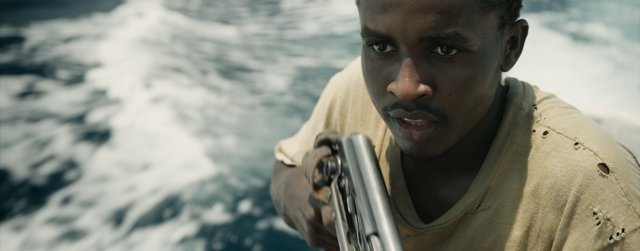What have I done with my blessings?
No matter who’s asking this question, it should make you stop and think. But especially when it comes out of the mouth of a Somali pirate.
Okay, so one of the actual Somali pirates you heard about on the news several years ago or saw in Captain Philips probably didn’t actually say this—or not that you know of. In his first feature length film Fishing Without Nets, director Cutter Hodierne asks his audience to forget the narrative you think you know and hear the Somali side of the story.
 Drafthouse Films
Drafthouse FilmsBack in 2012, Hodierne directed a short film of the same name that followed the life of Abdi as he left his unsuccessful life as a fisherman in order to provide for his family. The film did so well at Sundance (it won the Jury Prize in Short Filmmaking) that Hodierne decided to go back to Africa in order to finish the story he began telling.
“wanted to do it from the perspective I found most interesting and try to do justice to the truth we wanted to tell . . . I hope the authenticity comes across,” Hodierne explained at the Q&A session following the New York screening of the film.
In order authentically re-tell the story of the 2009 cargo ship hijacking, Hodierne and his team flew to Mombasa, Kenya and searched for people who were actually affected or involved in the pirating. Only two people in the film were professional actors; the rest came to auditions at nightclubs throughout the area. They were surprised that someone cared about their story and wanted to be part of telling it. Hodierne even went so far as to include the perspectives of the hostages, because he wanted “to do this thing right.”
And Fishing Without Nets does just that.
Hodierne’s film captures a well-rounded truth about something that is difficult to see clearly from all sides. Hodierne is able to give us a look into the lives of people that we usually only see as caricatures in news reports and movie trailers.
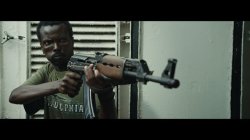 Drafthouse Films
Drafthouse FilmsFishing Without Nets reminds its audience that every single person involved in the 2009 cargo ship piracy was a human. And because of that fact, their story matters. Their stories deserve to be heard.
Hodierne takes his audience a step deeper than they might want to go. We watch a young Somali man fall in love; we see him father his child, and laugh with his family. We see so-called pirates joking with their friends and trying to figure out how to make ends meet, because “a man is not a man unless he can feed his family.” We hear their fears and see their pain.
While watching the film, I kept connecting the dots between this movie and Erich Maria Remarque’s World War I novel All Quiet on the Western Front. As a young American high school student, I didn’t understand why it was important for me to read a WWI novel from the perspective of a German soldier, but to this day the image of Paul watching the first man he killed die in pain for hours is engraved on my mind. Once Paul looked the “enemy” in the eye and was reminded that he too, was a human, that he too, has a family at home who loves him, he didn’t understand why that man should die. He too is his comrade.
In the same way, Hodierne’s lead character Abdi forges a friendship with one of the hostages and is reminded that he, too, is his comrade. Abdi washes the hostages hands before they eat, and the hostage in turn washes his. Although he can barely speak English, Abdi tries to explain to his friend, “You . . . me . . . jail.” Abdi too is imprisoned. He wants to do whatever it takes to feed his family, but he knows what he is doing is wrong.
Not only is the film a heartbreaking story, but it’s beautifully captured. Hodierne takes advantage of the natural aesthetics of the ocean and every move of the camera is smooth and easy.
 Drafthouse Films
Drafthouse FilmsFishing Without Nets isn’t a documentary, but it feels like one. “There’s something you can’t take off their faces. You can see their experience on their faces. You can’t wipe it off.” Hodierne is right. Although most of his actors have never acted before, they have lived. Not only that, but they lived through this specific tragedy. It’s something you have to see to understand.
I should warn you: this is a film that cannot be unseen. And if it hits you the way it hit me, leaves you unsettled and uncomfortable with the way we hardly ever think to hear the story on the other side. It leaves you wondering. What have I done with my blessings? Have I earned my fate with my own hands?
Caveat Spectator
Fishing Without Nets is rated R, which I think is to be expected from a movie about this sort of thing. For the faint of heart, there is an animal killed (for food), but it’s still a pretty intense moment. Foul language is sprinkled throughout—everything from the Lord’s name being taken in vain to more than a few variations of the f-word. There are a few sexual jokes and a pornographic magazine, but they are mostly blurred out. Throughout the film we see characters doing drugs or talking about them. One character threatens to take advantage of another. A few of the Somali pirates make racist remarks about the hostages. We only see one person quickly shot on screen and hear another.
Larisa Kline is an intern with Christianity Today Movies and a student at The King’s College in New York City.

